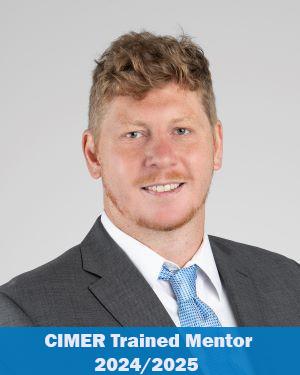Research News
05/23/2025
Antiviral T cells present in mouth found to worsen periodontitis progression
These findings represent a new critical driver of the disease, opening doors for potential treatments.

Cleveland Clinic researchers have demonstrated that immune cells which naturally defend against viral infections can trigger oral inflammation and drive periodontitis (a severe stage of gum disease).
Authors detailed in a study recently published in Mucosal Immunology how an immune cell in the mouth known as CD8+ T plays a vital role in promoting inflammation that could cause or worsen the progression of gum disease when activated by components of a virus. Periodontitis is the world's most common chronic inflammatory condition and is known to be driven by bacteria in the mouth and plaque. The common assumption during treatment is that if you get rid of the plaque, you get rid of the disease, says immunologist J. Michael Stolley, PhD, senior author on the study.
Dr. Stolley and his team saw in previous research that viruses may play a role in aggravating periodontitis. Antiviral therapies have shown some success as a treatment of the disease. Before their project, nobody had confirmed a link between antiviral T cell reactivation and worsened periodontitis. In preclinical studies, they provided evidence for the first time that antiviral T cell response can exacerbate a disease that is experienced by approximately half of the world's population.
CD8+ T cells normally help fight viruses by “remembering” past infections. However, the study found that when these T cells get reactivated locally in the mouth, they become too active and are more harmful than helpful.
“This is an over-exuberant immune response — the T cells think they're doing a good job by responding to an exposure they perceive to be a threat, but in doing what they're designed to do, they cause destructive inflammation that ends up making things worse,” Dr. Stolley explains. “Periodontitis is already known to be an inflammatory disease, and we now have evidence implicating an additional inflammatory cell type in the mix. It makes sense that a disease that's already driven by inflammation is going to worsen when other inflammatory cells participate in the response”.
What is the oral microbiome and why is it important?
The oral microbiome is a community of microorganisms residing in the human mouth, only second in complexity to the gut microbiome. Every day, the mouth experiences changes in temperature, moisture, acidity and even physical stress from talking and chewing that affect the composition of these microorganisms.
The mouth is also a major reservoir for infection and transmission beyond bacteria. It encounters numerous viruses, including those that can linger for a long time, like herpes, Epstein-Barr, and human papilloma virus, as well as seasonal viruses such as COVID-19. Dr. Stolley says the mouth is a vital mucosal tissue that has historically been the purview of the dentist and has not been adequately studied by immunologists, despite the fact that it serves as a vital access point for the gut and lungs.
Flavia Saavedra de Paula, DDS, PhD, first author of the study and a postdoctoral fellow in Dr. Stolley’s lab witnessed firsthand the detrimental effects of periodontitis on her patients’ well-being as a dentist.
“Severe gum disease can devastate self-esteem and overall quality of life and impact systemic health and nutrition,” she says. “By challenging longstanding historical dogma in the field of periodontitis pathobiology, we hope to provide more relief for these patients by alleviating inflammation in new ways.”
How does an antiviral inflammatory response affect periodontitis?
Now that they have proof that antiviral T cell responses can contribute to periodontitis pathology, Dr. Stolley’s lab is investigating how to dampen this response. Dr. Stolley says they plan to analyze human gingival biopsies from periodontitis patients in an effort to link disease severity with antiviral T cell responses in humans. They’re looking for patterns in medical history to see whether patients who have contracted viruses have worsened gum disease. Some patients with periodontitis experience a slow and gradual progression leading to a bad case of the disease, but others have a rapid decline in just a few months between dental checkups. Dr. Stolley’s lab believes in these cases there may have been a viral infection during that short period which triggered the sharp deterioration.
“I think of us as playing the role of a prosecutor,” he explains. “We have the suspect, which is antiviral T cells. We're building a case: we’ve put these cells at the scene of the crime by showing that antiviral T cells are abundant in diseased gingiva. We’ve found a motive, which is that they're trying to defend against a viral infection. Ongoing work is trying to identify a murder weapon — which if found — could be targeted to alleviate periodontal disease.”
Featured Experts
News Category
Related News
Research areas
Want To Support Ground-Breaking Research at Cleveland Clinic?
Discover how you can help Cleveland Clinic save lives and continue to lead the transformation of healthcare.
Give to Cleveland Clinic